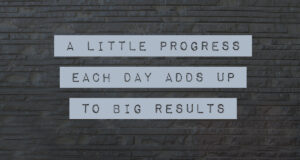
“The greater danger for more of us isn’t that our aim is too high and miss it, but that it is too low and we reach it.” —Michelangelo
Setting and achieving goals is a fundamental process for personal and professional growth. Whether you want to improve your career, health, relationships, or any other aspect of your life, setting and accomplishing goals can help you fulfill your potential. In our last blog, the importance of passion and purpose prior to setting goals was discussed. Simon Sinek in “Start with Why” emphasizes the importance of aligning goals with a deeper sense of purpose. He suggests that individuals should set goals that contribute to their overall mission and vision. This approach ensures that goals are meaningful and motivating. Now that you have reflected upon and established your purpose, it’s time to focus on goals.
Define Your Goals
Clearly define what you want to achieve. The more specific and detailed your goals are, the easier it is to work towards them. Establish a timeframe for achieving your goals. This adds a sense of urgency and helps you stay focused. Gary Keller co-author of “The ONE Thing: The Surprisingly Simple Truth Behind Extraordinary Results,” believes a focused and simplified approach is essential to achieving success. He shares that focusing on a single, high-priority goal or “one thing” is more effective than trying to juggle multiple goals simultaneously. He also encourages individuals to identify their most important goal and concentrate their efforts on it. When it comes to goals, less is better.
Break Down Your Goals
Divide larger goals into smaller, manageable steps or milestones. This makes the process less overwhelming and allows you to track your progress more effectively. Jack Canfield in “The Success Principles” advocates for a process he calls “chunking,” which involves breaking larger, more complex goals into smaller, bite-sized tasks or steps. This approach makes it easier to see the path to achieving the overall goal. David Allen in “Getting Things Done,” offers a comprehensive productivity system that includes breaking down goals into actionable steps. He emphasizes the importance of organizing tasks and projects into manageable components. The key word here is manageable. We sometimes are so intent on results that we might overestimate what is manageable.
Create a Plan
Develop a detailed action plan for each goal, outlining the steps you need to take to reach it. Several authors have written about building effective action plans to achieve goals and improve productivity. David Allen provides a comprehensive system for organizing tasks, projects, and goals, which helps individuals create actionable plans to achieve their objectives. For those who want to segment the year into quarters, Brian P. Moran and Michael Lennington in “The 12 Week Year: Get More Done in 12 Weeks than Others Do in 12 Months,” add a goal setting and action planning system designed to boost productivity and results in a shorter time frame. Finally, Marie Forleo’s in “Everything Is Figureoutable” encourages readers to create action plans by adopting a “figureoutable” mindset. In her book she provides strategies for breaking down challenges and taking actionable steps toward goals. Remember that an action plan is a dynamic document that should evolve as you progress toward your goal. Regularly reviewing and adjusting your plan is essential for staying on course and ensuring your actions align with your objectives.
Track Your Progress
Many experts emphasize the importance of tracking progress when working toward goals. Monitoring your progress allows you to stay on course, make necessary adjustments, and maintain motivation. You could keep a journal or use goal-tracking apps to record your achievements and setbacks. Gretchen Rubin, shares in “Better Than Before,” the value of self-monitoring and tracking behaviors to achieve personal goals and improve well-being. Another habit researcher, James Clear in “Atomic Habits” emphasizes the role of tracking habits as a key component of building and maintaining positive behaviors. There are many benefits of tracking progress, including improved productivity, goal achievement, habit formation, and personal growth. Without measurement, behavior change is extremely difficult to monitor!
Stay Committed
Staying committed can be a challenge which is an aspect of goal setting that Carol Assalian, MCBC, found when researching “The Messy Middle”. What she uncovered in her study was that many times when setting goals, people do not plan for challenges which directly impact commitment. Once you have set your goals, developed an action plan, and built a tracking program reflect on what might become a competing commitment? What are some tips for staying committed? Remind yourself about the reasons why you set your goals. Visualize your success and the benefits it will bring. You might even explore groups to join or communities with similar goals to gain support and motivation. Finally, share your goals with a trusted friend, family member, or a mentor who can help you stay accountable. Michael Hyatt, in “Your Best Year Ever,” provides guidance on setting and achieving personal and professional goals with the help of an accountability partner. He shares a specific framework for effective accountability partnerships which may help when choosing the best fit for an accountability partner.
Overcome Challenges
 Be prepared for setbacks and challenges. Embrace failures as opportunities to learn and adapt. Use setbacks as a chance to evaluate your strategy and make necessary adjustments. Ryan Holiday in “The Obstacle is the Way” shares the importance of developing resilience and mental toughness when facing obstacles or setbacks in the pursuit of goals. Learning to focus on what can be controlled and to persevere in the face of challenges is critical to goal success. John Norcross in “Changeology” adds that a “slip is not a fall” while sharing that in studies on behavior change 58-71% of people slip at least one time in the first 30 days. He advises us to build a plan for dealing with slips by avoiding high risk triggers, practicing saying no and more importantly responding constructively when a slip does occur. Finally, Angela Duckworth in “Grit” places emphasis on passion, determination, and resilience as keys to overcoming challenges and remaining focused on the goal. She also has some great YouTube videos if you want just a slice of her thinking on overcoming obstacles.
Be prepared for setbacks and challenges. Embrace failures as opportunities to learn and adapt. Use setbacks as a chance to evaluate your strategy and make necessary adjustments. Ryan Holiday in “The Obstacle is the Way” shares the importance of developing resilience and mental toughness when facing obstacles or setbacks in the pursuit of goals. Learning to focus on what can be controlled and to persevere in the face of challenges is critical to goal success. John Norcross in “Changeology” adds that a “slip is not a fall” while sharing that in studies on behavior change 58-71% of people slip at least one time in the first 30 days. He advises us to build a plan for dealing with slips by avoiding high risk triggers, practicing saying no and more importantly responding constructively when a slip does occur. Finally, Angela Duckworth in “Grit” places emphasis on passion, determination, and resilience as keys to overcoming challenges and remaining focused on the goal. She also has some great YouTube videos if you want just a slice of her thinking on overcoming obstacles.
Celebrate Achievements
Celebrating achievements is an important aspect of maintaining motivation and recognizing your progress toward your goals. Celebrate your successes, no matter how small. Many people delay any celebration until the goal is reached. Recognizing your achievements will boost your motivation and confidence. Celebrating achievements is a positive and rewarding practice that can have a significant impact on your well-being, motivation, and overall success. Remember that celebrating achievements is a personal practice, and what works for one person may differ from what works for another. Options for celebration may include rewards, acknowledging milestones, and even celebrating the success of others who may be working on their own goals. The key is to make your celebrations meaningful, enjoyable, and aligned with your values and preferences. By celebrating your achievements, you not only acknowledge your hard work but also fuel your motivation to continue pursuing your goals and dreams.
As you reflect upon your goals for 2024, keep in mind that setting and achieving goals is an ongoing process. It requires dedication, perseverance, and the willingness to adapt as circumstances change. By following the steps for goal setting and staying committed, you can work towards a more fulfilling and successful year!
For more information on Carol Assalian’s presentation on “The Messy Middle” please join us on February 7 at 8 AM PST/11 AM EST. https://us02web.zoom.us/j/89476852391